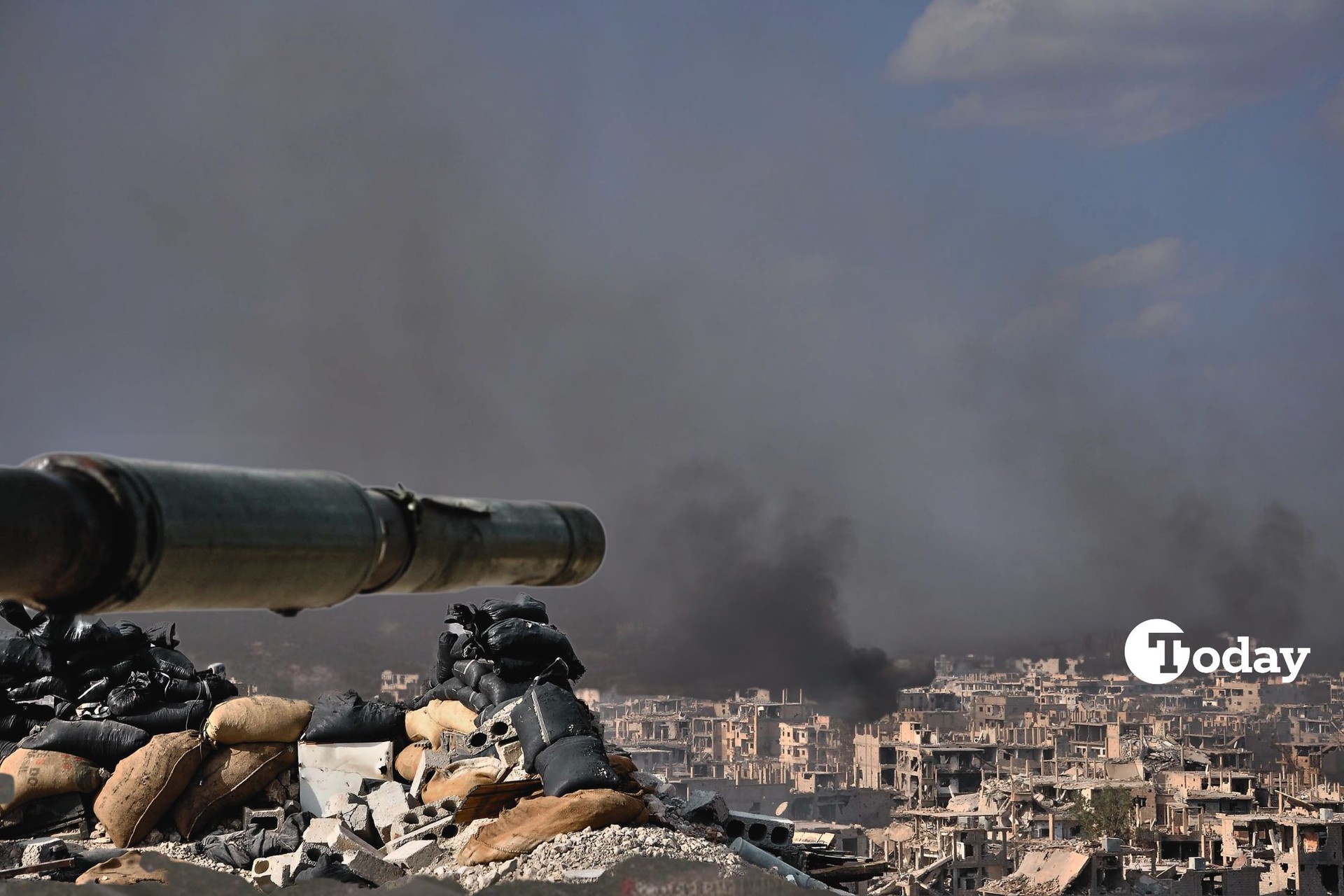
Syrians’ struggle for unity has been overshadowed by the actions of numerous armed groups vying for power, since the Assad regime’s grip faltered. Among these, the Syria branch of the PKK terrorist group, renamed as SDF, has become a focal point of controversy due to their oppressive practices toward the locals, particularly in areas like Raqqa, Hassakeh and Deir ez-Zor. The region's potential for contributing to Syria’s reconstruction is overshadowed by the existence of group's mismanagement and persistent unrest.
Northeastern Syria, rich in natural resources and strategically vital, is a cornerstone for rebuilding a unified country. Yet, control over this area remains contested and in negotiations, per the new defense minister of the country. Armed militias, political oppression and external interference have deepened local grievances, perpetuating cycles of conflict and instability.
This persistent climate of suppression has led to growing unrest, particularly in Deir ez-Zor, where tribal and Arab communities are actively resisting external domination. The parallels to the past are clear with those of Assad: the failure to address local dissent and oppression could once again destabilize efforts to unify and rebuild.
Zain al-Abidin al-Oghaidi, a journalist from Deir ez-Zor with a presence in many media platforms, explains the struggles of local populations, and the broader regional implications of this evolving conflict for Türkiye Today.
The fragmentation within Kurdish political movements is something yet to be understood by external assessments. The recent assassination of Ismail Fatah, National Council (ENKS) member, near al-Qahtaniyah in Hassakeh province underscores these tensions. His death is the latest in a series of targeted attacks against ENKS members by the PKK and its Syrian branch.
Al-Oghaidi explains, “In Syria, it’s almost a joke among locals that every 10 Kurds have their own party." Among these factions, the PYD and the ENKS represent opposing poles. The ENKS, with ties to the Barzani-led Kurdish Democratic Party in Iraq, has often found itself at odds with the PYD. It initially had more international and popular support among Syrian Kurds during the early years of the Syrian civil war, before the U.S. broke a deal with the terrorist organization.
The dominance of PYD/PKK, however, has also led to crackdowns on dissenting voices. Al-Oghaidi recounts, “Members of the ENKS have faced persecution, including arrests and harassment by PYD-affiliated militias.”
![Over a month has passed since they took control of Deir ez-Zor. On the photo, it can be seen the new leadership's armed groups, led by Hay'at Tahrir al-Sham (HTS), in Hama, Syria, December 3, 2024. [Izzettin Kasim/Anadolu Agency]](https://img.turkiyetoday.com/images/2025/01/image-68.png)
Civilians in SDF-controlled areas have frequently voiced discontent, particularly in regions like Raqqa and Deir ez-Zor. Demonstrations against the SDF have been met with heavy-handed responses.
Deir ez-Zor journalist recalls a pivotal moment in Raqqa: “Protesters called for the exit of Qasad (SDF). What followed was tragic—random gunfire killed three demonstrators and injured many others. The aftermath saw Raqqa effectively shut down, with internet blackouts and increased arrests.”
Similar scenes unfolded in Deir ez-Zor, where protests against the SDF’s administration resulted in deadly clashes. “In one instance, 13 civilians were killed by SDF forces during demonstrations,” Al-Oghaidi shares. He adds that such incidents have fueled resentment among the local population, creating an enduring divide.
Despite controlling resource-rich regions, the SDF has faced accusations of neglecting essential infrastructure. Since gaining control of areas like Raqqa and Deir ez-Zor, there has been little effort to rebuild schools, water facilities, or other critical infrastructure.
“Not a single stone has been laid to rebuild what was destroyed,” al-Oghaidi states. “Schools remain in ruins, water stations are non-functional, and essential facilities are neglected. People feel abandoned and betrayed.”
Efforts to stifle dissent extend beyond physical repression. “Anyone who dares to criticize, even on platforms like Facebook, risks immediate arrest,” the local journalist explains. “The Revolutionary Youth militia, affiliated with the PYD, has been instrumental in silencing opposition and terrorizing civilians.”
(Revolutionary Youth militia) They monitor social media platforms like Facebook, arresting individuals for even minor criticisms of their governance. This has created an atmosphere of fear where residents are unable to express their frustrations openly.
Zain al-Abidin al-Oghaidi
Many residents of Deir ez-Zor are now placing their hopes in negotiations to bring stability to the region. However, the path to reconciliation is fraught with challenges. “People want peace and progress,” al-Oghaidi concludes. “But their hopes are often at odds with the agendas of those in power. Bridging this gap is essential for any meaningful resolution.”

Ankara demands that Washington halt its support for its chosen partners in northeast Syria, the PYD and its armed YPG, both offshoots of the transnational terrorist-designated PKK that has waged an armed campaign against Türkiye for more than 40 years.
However, these groups represent the elements of the U.S.-backed “Democratic Autonomous Administration of North and East Syria” (DAANES) and its YPG military units are crucial in keeping Syrian petroleum resources, with the fight against the Daesh terrorist group remaining the official justification.
Negotiations between the SDF, Türkiye and the new Syrian administration have made little headway. Observers suggest that the SDF may be stalling, awaiting potential shifts in U.S. policy. Al-Oghaidi remarks, “The SDF’s rhetoric about dissolving its forces or integrating them into Syria’s military establishment appears to be a tactic to buy time.”
Communities in northeastern Syria are raising the Syrian national flag in areas under the control of terrorist group, as seen in social media images. These acts of defiance reflect a growing longing for unity.
The PKK/YPG relies on foreign fighters and external support to maintain its grip, while its negotiations revolve almost entirely around oil revenue. With limited representation and mounting local discontent, in addition to the pressure coming from regional powers, the entity’s control over the region appears increasingly hard to maintain.